SULTANS OF SWAP: Smoking Guns & the Sting!
 There
are 7 stages to executing a successful sting operation. Whether this is
the modus operandi behind the Sultans of Swap operating in the $605
Trillion OTC Derivatives market or just simple coincidence, I will leave
it to you shrewd reader to determine. The seven stages do however
offer us an instructive theater guide to better understand these murky
instruments called Interest Rate Swaps.
There
are 7 stages to executing a successful sting operation. Whether this is
the modus operandi behind the Sultans of Swap operating in the $605
Trillion OTC Derivatives market or just simple coincidence, I will leave
it to you shrewd reader to determine. The seven stages do however
offer us an instructive theater guide to better understand these murky
instruments called Interest Rate Swaps.
For our
younger readers The Sting
is a 1973 American movie set in September 1936 (an era not too
dissimilar economically to present day) that involves a complicated
plot by two professional
grifters
(Paul Newman and Robert Redford) to con a mob boss Robert Shaw. The story
was inspired by real-life con games documented in �The Big Con: The
Story of the Confidence Man�. (Not to be confused with �The
Confidence Game� by Stephen Solomon documenting today�s Global Central
Banking structure and our own Federal Reserve).
The title phrase refers to the moment when a con artist finishes the
"play" and takes the
mark's
money. If a con game is successful, the mark does not realize he has been
"taken" (cheated), at least not until the con men are long gone
(Wikipedia)
The 7 steps of a successful Sting normally occur in 3 stages which we will
distinguish as Acts in today�s modern �play�. Now that you understand the
plot line, sit back, tightly hold onto your wallet and enjoy the �play�.
ACT I - SMOKING GUNS
Usually a caper or heist film will contain a
three-act plot. The first act usually
consists of the preparations for the heist: gathering conspirators,
learning about the layout of the location to be robbed, learning about
the alarm system, revealing innovative technologies to be used, and,
most importantly, setting up the plot twists in the final act. (Wikipedia)
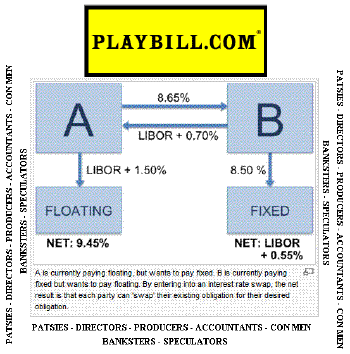 1
-THE PLAYERS
1
-THE PLAYERS
Like any play we first need to introduce the actors. Who exactly are the
Sultans of Swap who play the $437 Trillion global Interest Rate Swap game?
There are many actors involved, all with their own motivations and sub
plots. We should pay close attention because like any good mystery the
answers are unravelled in the multitude of sub plots all happening
concurrently.
-
THE PATSY: The Counterparties A & B (shown to the right in a simple
interest rate swap structure) actually hold the OTC (Over-the-Counter)
contracts. We will refer to them as the �PATSY� or �PATSIES�. Like all
PATSIES they have an angle and think they are smarter than most. They have
just enough knowledge to be dangerous.
-
THE ACCOUNTANTS:
These are the third parties that administer the ongoing interest payment
stream exchanges. We include here also the major global law firms making
daunting fees for contract writing and consultation. We will refer to them
as a group called �THE ACCOUNTANTS�.
-
THE SPECULATORS:
These are the issuers and holders of CDS�s that protect against or
speculate on counterparty failure of the interest rate swap contract OR
the PATSY specifically. We will refer to them as �SPECULATORS�. It needs
to be fully understood that our SPECULATORS engage in naked shorting of
CDS�s in an unregulated OTC where no DTCC exists that acts as a matching
inventory custodian. Our SPECULATORS appear as sinister looking characters
in our fictional play.
-
THE PRODUCERS:
These are the magicians that put the OTC contract together, take a quick
fee and rapidly leave the scene in Act I as an apparent supporting actor.
We could call them the �magicians� but we will call them the PRODUCERS after the Broadway play
by the same name and possibly with similar motivations. You may recall
that the 2005 movie �The Producers� was
about two producers pulling a sting where they intentionally produced a
play expecting and planning for its failure. The TAKE was in the
failure. Broadway is only uptown from Wall Street and in the center of the
mid town Investment Banking crowd. Like a chicken & egg it is hard to tell
which was devised first � the evening theater entertainment or their daily
enterprising activities. (Note: We need to carefully watch the sub
plot of the PRODUCERS unfolding or we won�t see the sting coming).
after the Broadway play
by the same name and possibly with similar motivations. You may recall
that the 2005 movie �The Producers� was
about two producers pulling a sting where they intentionally produced a
play expecting and planning for its failure. The TAKE was in the
failure. Broadway is only uptown from Wall Street and in the center of the
mid town Investment Banking crowd. Like a chicken & egg it is hard to tell
which was devised first � the evening theater entertainment or their daily
enterprising activities. (Note: We need to carefully watch the sub
plot of the PRODUCERS unfolding or we won�t see the sting coming).
-
THE CON MEN:
These are the �Confidence Men� or �CONS� for short. Their role is make our
PATSIES feel confident. These are the Credit Rating Agencies who have
starred in previous plays (i.e. the Toxic Asset ratings associated with
the financial crisis) once again doing their mysterious and well
disclaimed ratings. In our play they are rating both the credit worthiness
of either PATSY and even the SPC (Structured Private Company) involved in
certain Sovereign Interest Rate Swaps (more on that later). Their
role allows either PATSY to feel comfortable that the other PATSY can pay
(we need to immediately recognize the difference between operative
words: can and will).

-
THE DIRECTORS: These are the SEC, CFTC & corresponding
international regulatory authorities. This group additionally includes
Legislative authorities such as the US House Financial Services Committee
and the US Senate Banking Committee that somehow are always overlooked but
are senior DIRECTORS in this play. All the DIRECTORS in our fictional play
are dressed as sleepy eyed police officers with little to no interest in
the shenanigans of the other actors throughout all three acts. The
DIRECTORS are seen to react to telephone calls that occur throughout our
play where there is a brief flurry of disorganized and short lived
attention. They are then seen to supervise the fallout of some exploding
financial event, before just as quickly returning to their ongoing siesta.
-
THE BANKSTERS:
These are the international banks making obscene fees and trading charges.
We are talking $35B in 2009 trading fees alone (6) for brokering these
swaps from parties desperate to re-align contract bets since the financial
tsunami arrived. We
will call them the �BANKSTERS�.
As in any mystery thriller the sub plots can make a simple story appear
more complex than it really is. We need to remember what the old carnival
�3 shells & a pea� game teaches - it is a sleight of hand & deception that
allows the trick to work.
Enter stage left our PRODUCERS and PATSIES.
2- THE
SET-UP
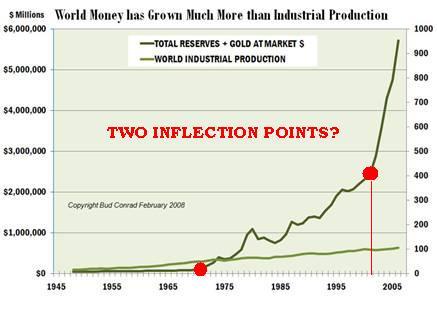 The
Set-Up must achieve two objectives: Establish the NEED and create
CONFIDENCE.
The
Set-Up must achieve two objectives: Establish the NEED and create
CONFIDENCE.
THE NEED
� Debt
Addiction
The ideal
need is one that is addictive. Drugs, Alcohol and Tobacco are three of the
clearer examples. Like pushers conning children into using drugs for the
first time, the PRODUCERS must convince the PATSIES there is no danger.
Everyone is doing it and it will make life better.
Our
addiction of choice in this sting is Debt. Whether Consumer, Corporate or
Sovereign Debt, western economies have become addicts over the last 30
years � there can be little disputing this fact. It did not happen by
chance. To those trafficking in debt the Holy Grail is Sovereign debt.
This is due to both its size and its ability to guarantee debt payments
based on a legal authority to tax. It has the law and enforcement powers
behind it.
John
Perkins has authored a series of books from �Confessions of an Economic
Hit Man� in 2004 to �Hoodwinked� in 2009, laying out his
personal involvement in intentionally establishing false economic
justifications for large sovereign infrastructure projects around the
globe. Whether you believe his assertions that it was at the behest of
elements within the US government, we can clearly see is he was up front
and involved in perpetrating the plans & justifications upon which
governments in third world countries could secure massive levels of debt
based on fraudulent economic justifications. Even those who weren�t
addicted because they didn�t have the ability to borrow were drawn into
the game by agents that would free foreign leaders from debt constraint.
Debt obligations through the hands of these pushers quickly flowed like
drugs to an addict and liquor to an alcoholic.
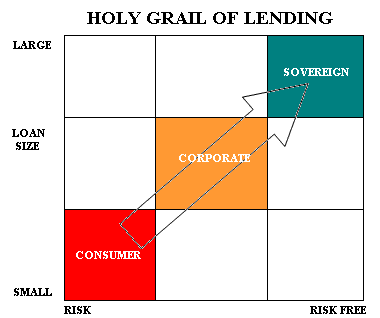 In
more developed countries with legacy social entitlement programs we are
seeing massive social entitlements continuing to only get larger, more
generous and more underfunded. None is more obvious than in Greece,
Portugal, Italy, Spain (PIGS) and across Western & Eastern Europe
where the unquenchable thirst for more debt has reached the terminal stage
that all substance abusers will eventually find them if all restrictions
to drugs (lending) are removed.
In
more developed countries with legacy social entitlement programs we are
seeing massive social entitlements continuing to only get larger, more
generous and more underfunded. None is more obvious than in Greece,
Portugal, Italy, Spain (PIGS) and across Western & Eastern Europe
where the unquenchable thirst for more debt has reached the terminal stage
that all substance abusers will eventually find them if all restrictions
to drugs (lending) are removed.
Enter
stage right the CON MEN to join the others on the stage.
CREATING
CONFIDENCE
� The
�AAA�
In �The
Swaps that Swallowed Your Town�, the New York Times on 03-05-10
illustrated how Interest Rate Swaps were shrewdly peddled to US
municipalities, school districts, sewer systems and other tax-exempt debt
issuers. In this world of the intersection of Derivatives and Municipal
debt financing, the sales pitch they report �(the peddlers)
accentuated the positives in them. �Derivative products are unique in the
history of financial innovation,� gushed a pitch from
Citigroup
in November 2007 about a deal entered into by the Florida Keys Aqueduct
Authority. Another selling point: �Swaps have become widely accepted by
the rating agencies as an appropriate financial tool.� And, the
presentation said, �they can be easily unwound�
(1).
The ratings agencies were at the center of the collapse in the
mortgage securitization collapse because of the perceptions that the
rating agencies rated CDO (Collateralized Debt Obligations) and all the
other toxic waste as AAA. In the interest rate swap play the credit rating
agencies rate the sovereign debt based on what the balance sheet shows
them. They would likely argue that even if they are fully aware of off
balance sheet activities their duties are to appraise only what is before
them, what the accounting standards of a particular sovereign outlines and
specifically how those standards interpret �contingent liabilities�. (More
on this subject as our play unfolds). Armed with the newly arrived CON
MAN�s credit rating on both PATSIES, with the assurances of the PRODUCERS,
and with the help of the now present ACCOUNTANTS, our PATSIES feel
confident that risks are manageable based on everything they have heard
from the experts present on stage.
 3-
THE HOOK
3-
THE HOOK
The hook
is about the Timing and Rationalization of the Sting.
The
BANKSTERS join the large crowd of actors now performing complex magical
acts before the PATSIES on stage.
Like any
addiction it takes an event to initiate the addiction. The event delivers
both Timing & Rationalization.
Whether it
is a third world leader clinging to power by offering expensive populist
solutions, declining revenue bases due to failing industrial policy,
geo-political defense requirements, a natural disaster, economic
strategies like Dubai�s opulent extravagances or membership in the
European Union with its Maastricht Agreement requirements etc, etc., these
are the justifications, excuses or motivations for the loan and expanding
debt.
This list
and endlessly more justifications have always existed. Getting the money
historically has been the constraining element. No more constraints thanks
to our Sultans of Swap.
4- THE
TALE
The Tale
is the presentation of the OFFER.
With all
our actors seated at the table in the center of the stage we hear the
quiet whispers as the plan is secretly divulged.
From the
endless list of timing & rationalizations we will select just one to
overhear in our fictional play which is garnering a lot of investor &
media attention � The European Union Experiment.
According
to the Maastricht Agreement and the EU
Stability & Growth Pact (SGP) a condition of entry and ongoing membership
is the adherence to fiscal deficits of no more than 3% of GDP and total
debt of no more than 60% of GDP. It is now emerging that members were
creative in their accounting to facilitate membership, and then even more
creative to allow for existing debt compounding and the increases due to
additional populist programs.
The audience tentatively listens as the whispered plans are unveiled:
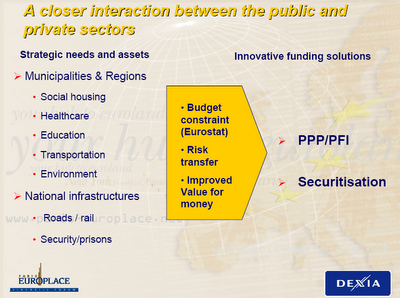 GREECE
GREECE
We form a PPP (Public Private Partnership) under the direction of a PPI
(Public Private Initiative). We form a SPC (Special Purpose Company).
Through the contractual use of a legal opus magnum called a Novation
Agreement the Greek government exchanges fixed interest streams for
floating interest rate streams and in so doing receives cash up front with
a bubble payment at the termination of the Interest Swap Agreement.
Presto, we have an off balance sheet debt without any impact to Greece�s
sovereign debt rating. It is much more involved than this and I therefore
refer you to:
SULTANS OF SWAP: Explaining $605 Trillion in Derivatives!
and
SULTANS OF SWAP: Fearing the Gearing!
which outlines this structure as specifically applied at Kitlos PLC
(SPC) in Greece.
Reggie Middleton at the
BoomBustBlog.com has done some truly tenacious
digging and has unearthed the following further smoking guns:
�According
to people familiar with the matter interviewed by
China Securities Journal, Goldman Sachs Group Inc. did as many as 12
swaps for Greece from 1998 to 2001, while Credit Suisse was also involved
with Athens, crafting a currency swap for Greece in the same time frame.
Under its "off-market" swap in 2001, Goldman agreed to convert yen and
dollars into euros at an artificially favorable rate in the future. This
helped Greece to use that "low favorable rate" when it recorded its debt
in the European accounts-pushing down the country's reported debt load.
Moreover,
in exchange for the good deal on rates,
Greece had to pay Goldman (the amount wasn't revealed).
And since the payment would count against
Greece's deficit, Goldman and Greece came up with another twist: Goldman
effectively loaned Greece the money for the payment, and Greece repaid
that loan over time.
And the
two sides structured the loan as another kind of swap. So, the deal didn't
add to Greece's debt under EU rules. Consequently,
Greece's total debt as a percentage of GDP fell from 105.3% to 103.7%, and
its 2001 deficit was reduced by a tenth of a percentage point in GDP
terms, according to people close to Goldman�. (2)
ITALY
�As discussed in a recent
ZeroHedge article, a 1996 Italian currency swap, arranged by J.P.
Morgan, allowed Italy to receive large payments upfront that helped keep
its deficit in line, with the downside of greater payments later. In
addition, to curbing their current deficits, countries are now using these
swap agreements to push off their loan liabilities (related to swap
agreements) to a later date through securitization, and Greece is one such
example.
Under the 2001 deal brokered by Goldman, Greece swapped dollar and
yen-denominated debt for Euros at below-market exchange rates. The result
was that the country got paid �1 billion ($1.35 billion) upfront on the
swap in exchange for an obligation to buy the swaps back later. In 2005,
this obligation was in turn securitized as part of a 20-year debt issue,
further pushing off the day of reckoning.
Moreover, one of the key reasons why such manipulations continued is the
apparent ignorance of the EU's Eurostat, which knew enough about these
deals to tighten the rules governing their accounting-albeit only after
they had served their purpose - the Ponzi! When Italy's then-Prime
Minister Romano Prodi miraculously achieved a four-percentage-point
improvement in Italy's budget deficit in time to usher the country into
the common currency, Italy's use of accounting gimmicks was widely
discussed, and then promptly ignored. As at that time, everyone was only
too eager to look the other way in the drive to get the single currency up
and running.
It wasn't until 2008, a decade after the deals became popular, that
Eurostat was able to revise its rules to push countries to include swaps
in their debt and deficit calculations. Still, todate too little is known
about countries' continued exposure to the deals that are already out
there.
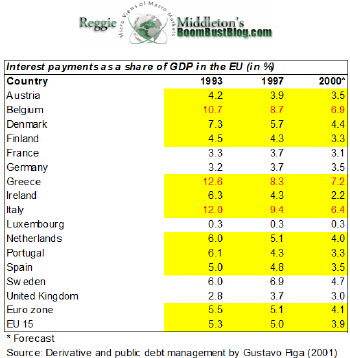 Overall,
though there is less evidence to support that there are more such swap
deals that happened during the late 90's until early part of this decade,
the data to the right showing a sharp decline in interest payments as a
percentage of GDP particularly for Belgium (apart from Greece and Italy),
hints that there are considerably more of these deals to be discovered.
The question is, will they be discovered before or after the respective
sovereign issues record debt to the
Overall,
though there is less evidence to support that there are more such swap
deals that happened during the late 90's until early part of this decade,
the data to the right showing a sharp decline in interest payments as a
percentage of GDP particularly for Belgium (apart from Greece and Italy),
hints that there are considerably more of these deals to be discovered.
The question is, will they be discovered before or after the respective
sovereign issues record debt to the suckers sovereign fixed income
investors.
Notice the extremely supercalifragilisticexpealidocious reductions
Belgium, Greece and Italy have made in their interest payments from 1993
to 2000 in this graphic made pre-2000. If one didn't know better, one
would have thought these countries actually used magic to make such
reductions. Italy practically cut their debt service (projected, of
course) in half. It really makes one wonder. I'm just saying...
According to DERIVATIVES AND PUBLIC DEBT MANAGEMENT by
Gustavo Piga, "The political stakes of the 1997 budget package
were enormous. Therefore, it was no surprise that many countries were
accused of �creative window-dressing' in their budget through the use of
accounting tricks to reach the desired goal. One contentious item was
interest expenditure, which is the interest expense that governments
sustain to finance their deficit and roll over their debt. Interest
expenditure represents a high percentage of public spending and GDP in the
European Union. It is highly variable over time, especially when compared
to other components of the budget. Because of its relevance and because it
is subject only to minimal scrutiny during budget law discussions (and
many times even after its realization during the fiscal year), interest
expenditure is an ideal target for reaching fiscal stabilization goals
without incurring excessive political protest or opposition". (2)
Reuters leaves little to speculation when it reported on March 11, 2010
Forget Greece:
Italy Derivatives Bomb also ticking
Many
local governments eager to cut financing costs for years rushed to sign
up for complex derivatives contracts, even when the terms were in
English. But some cities, facing big losses when interest rates go up,
are now trying to pull out of derivatives and suing the international
and local banks that arranged the deals.
In a
test case, a judge in Milan will decide in coming weeks whether to try
13 people and four banks -- UBS (UBSN.VX),
Deutsche Bank (DBKGn.DE),
Germany's Depfa and JPMorgan Chase & Co (JPM.N)
-- on aggravated fraud charges. The case stems from a derivatives swap
over a 1.68 billion euro ($2.28 billion) 30-year bond, the biggest
issued by an Italian city.
Milan,
Italy's financial capital, is facing a 100 million euro loss on the
deal, city officials say. Milan is also suing the banks for 239 million
euros in overall liabilities.
In the
southern region of Puglia, prosecutors are seeking to bar Merrill Lynch,
a unit of Bank of America Corp (BAC.N),
from government contracts for two years. The move stems from derivatives
losses from 870 million euros in regional bonds.
JPMorgan, UBS and Deutsche have denied wrongdoing, and Depfa has
declined comment. Merrill has not commented.
MAKE THE
SWITCH
Almost
500 small and large Italian cities are facing mark-to-market losses of
2.5 billion euros on the contracts, according to the Bank of Italy.
Analysts say that figure will balloon when interest rates go up. Most of
the contracts involved switching fixed rates on loans to variable ones
with banks.
"With
the economic crisis, the problem has been lessened a bit (with lower
rates) ... But in fact with a rate rise it becomes an even worse
problem," said Fabio Amatucci, an expert on local government
finances at Milan's Bocconi University.
The
European Central Bank is expected to start hiking rates at the end of
this year or early next year.
U.S. and
European officials are looking into how U.S. investment bank Goldman
Sachs Group Inc (GS.N)
may have helped Greece disguise the size of its budget deficit through
the use of cross-currency derivatives in 2001.
The
Italian deals differ somewhat from the Greek case since the instruments
were usually for switching rates on loans, but Italy stands out because
of the vast number of cities, regions and public entities -- even a
theater association -- that turned to them from 2001 to 2008.
The Bank
of Italy put the notional value of derivatives contracts at 24.1 billion
euros in June 2009. However, Il Sole 24 Ore business newspaper on
Thursday cited Treasury data to put the overall figure at 35.5 billion
euros -- a third of local governments' debt -- when wider
criteria were used.
Although
central bank figures show 467 local governments had derivatives
contracts at the end of September, Amatucci believes the real number
could be around 3,000 as more deals emerge.
The
government banned new contracts in 2008 pending new rules. Economy
Minister Giulio Tremonti has said there is "no effect" from derivatives
held by local governments.
LOOSEN
UP
Local
governments rushed into derivatives in part because they helped ease the
rigidity of a 2001 law that bars taking on new debt except to finance
investment.
But another
big draw was the upfront payment many cities got in advance for signing
revamped agreements, usually done without a bidding process,
analysts said.
Renegotiated deals shoved back payment and costs in a "political
manipulation" of signings, said Giampaolo Gialazzo with the Tiche
consultancy in Treviso.
Revised
deals also carried increasingly restrictive terms and higher costs
for municipalities and other local governments.
"Greece
did nothing more than get itself money right away and then pay it back
slowly. Local administrations in Italy did the same thing," said
Massimiliano Palumbaro with CFI Advisors in Pescara. Pescara, a southern
Italian city, itself took out a total of 108 million euros in interest
rate swaps and is suing UniCredit SpA (CRDI.MI)
and BNL, a unit of France's BNP Paribas (BNPP.PA),
over them. UniCredit had no comment, while BNL had no immediate comment.
When
rates are low, as they were when many contracts were agreed, local
authorities using a variable rate could find their costs shrinking.
However, when rates rose, officials would find themselves owing more
money.
Milan
has argued, as have many other local administrations, that the contracts
were murky, carried hidden costs and banks had failed to explain them.
However,
a source close to the issue said Milan could not argue that it was
ignorant about derivatives since the 2005 swap replaced a contract that
had been renegotiated repeatedly.
The city
also has wide securities markets experience given its joint control of
listed utility A2A (A2.MI),
the source said.
With
banks putting in place a complex deal that had to be overseen for 30
years with hefty back-office costs, "the city could not expect that the
banks were going to take that position for free," said the source.
Despite
the court cases, Milan is still interested in derivatives. The city
council said on Wednesday it was studying a switch from a variable rate
on the contract to a fixed one.
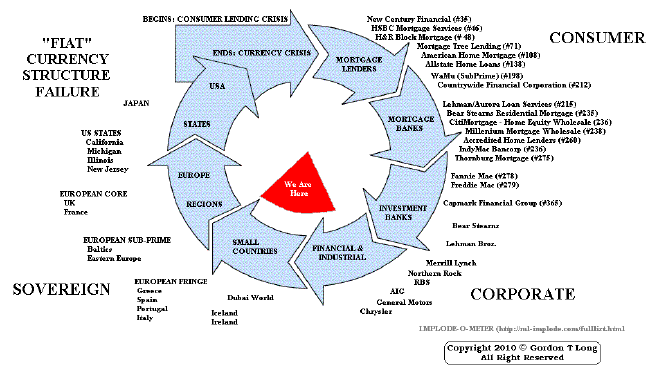
PORTUGAL
�Portugal
has also been known for years to take advantage of derivatives contracts
to dress up its budget numbers in the late 1990s.
In a recent press article (Debt
Deals Haunt Europe) Deutsche Bank's spokesman Roland Weichert
commented that the bank has executed currency swaps on behalf of Portugal
between 1998 and 2003. He also said that Deutsche Bank's business with
Portugal included "completely normal currency swaps" and other business
activity, which he declined to discuss in detail. He also added that the
currency swaps on behalf of Portugal were within the "framework of
sovereign-debt management," and the trades weren't intended to hide
Portugal's national debt position (yeah okay!). Though the Portuguese
finance ministry declined to comment on whether Portugal has used currency
swaps such as those used by Greece, They said Portugal only uses financial
instruments that comply with European Union rules.� (3) The Portugal
comment begs the whole issue of �Framework of Sovereign Debt Management �.
What it is and how exactly it aligns with standard international
accounting practices as it relates specifically to �contingent
liabilities� � but we digress and will return to this briefly.
We could go from Spain to France and other EU countries operating under
the Eurostat framework guidelines and see the same thing. We could discuss
the Millennium Dome Project in the UK. We could discuss Dubai World and
the hidden amount of debt recently discovered (and still being
discovered), but let�s skip over the pond to the USA to see if this is
just an isolated European �TALE� being told.
US - NY STATE MUNICIPALS
In The
Swaps That Swallowed Your Town the New York Times shows that
there is widespread use of Interest Rates swaps across US Municipalities
with extremely negative consequences now showing up that were not
understood when the PRODUCERS and BANKSTERS made their presentations.
Though I failed to see clear proof in their examples of the adoption of
the Novation agreement being used in Europe, this doesn�t necessarily mean
it is not being used or there is a derivation being employed in the US.
What I found interesting was that the CEO of an advisory firm on this
subject is quoted as saying �We need transparency where Wall Street
discloses not only the risks but also calculates the potential costs
associated with those risks. If you just ask issuers to disclose, even in
a footnote, the maximum possible loss or gain from the swap, they probably
wouldn�t do it.� (1) The audience must surely notice that the DIRECTORS
in our play are now completely asleep on stage though another frustrated
call is heard from Harry Markopolos over the stage loud speaker.
And here ladies and gentleman � watch closely � we have the sleight of
hand mentioned earlier.
Everything is aimed at getting debt off the balance sheet. Whether through
SPE (Special Purpose Entities) of various descriptions or conduits such as
SIV (Structured Investment Vehicle) the shell game is all about avoiding
the �d� word or Debt.
A LOAN is a debt and must be accounted as A LIABILITY.
A GUARANTEE is not a loan! It is a CONTINGENT Liability.
A Guarantee is something that accountants refer to as a �contingent
liability�. The operative word here is �contingent�.
This quickly gets extremely tricky to quantify in its simplest form
without adding the complexity of layers of structures and parties around
it. It becomes a game of assessed probabilities. The results of the
probabilities determine the amount of contingent liabilities to be accrued
as a debt liability. Then there is the question of timing. What event
might trigger this and when should the liability treatment be reflected.
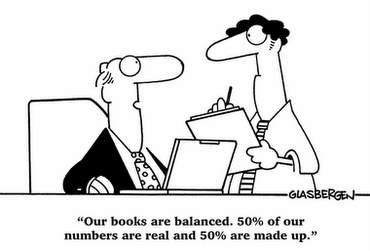 As
an illustrative example, what were the chances of housing correcting 15%
when we hadn�t seen housing go down in neither our lifetime or our
possibly our parents? Many considered it unlikely and therefore either
minimal or no contingencies were allowed.
As
an illustrative example, what were the chances of housing correcting 15%
when we hadn�t seen housing go down in neither our lifetime or our
possibly our parents? Many considered it unlikely and therefore either
minimal or no contingencies were allowed.
Add to this confusion a slew of accounting standards with various
interpretations and rulings (ias
37 contingent liabilities,
ifrs contingent liabilities
,
fasb contingent liability,
us gaap contingent liabilities,
Government Accounting Standards
Advisory Board,
contingent liabilities disclosure etc.) and you end up in very
murky waters - Waters not too dissimilar to those associated with toxic
assets in the financial crisis where it was nearly impossible to value
Level 1 bank Capital Ratios � Mark-to-Market was Mark-to-Model or more
aptly Mark-to-Myth. This is the same problem with a slightly different
twist. There is the same consistent concern about debt appearing on an
asset / liability ledger.
5- THE
WIRE
The bookie
operation was a wire service in the movie �The Sting� and it was central
in pulling off the story�s heist. In our play we have an electronic wire
service but it runs between the BANKSTERS and some of the PRODUCERS. It is
called the OTC or Over-the-Counter trading. This is how all $605 Trillion
Derivatives, including $437 Trillion in Interest Rate Swaps, are traded.
No regulations. No standards. No supervision. No audits. They are
completely private, restricted and proprietary. There is no sheriff or
watch dog. It is the Wild West without a sheriff in town. The boys can
shoot it up all they want. Similar to the DTC & Naked Shorting, Dark
Pools, High Frequency Trading etc., it is ripe for creative enterprise.
Just the kind of secrecy I believe people serving time at �Sing-Sing� like
things.
If you
thought the play was getting complicated when we discussed the Novation
agreement and assessing Contingent Liabilities, let�s add the twist that
all these private contracts are traded. The poor auditors must have their
heads spinning. Which auditor in which country you astutely ask? As Johnny
Depp famously drawls in the mob crime flick �Donnie Brasco� to
explain handling transactions like this � �Forget about it!�
Even an
old fashion Bookie wire operation in the 1930�s had more supervision than
the modern day OTC.
THE SPREAD
or �the
vig�
The
difference between the bid and the ask on an open exchange is the spread.
According to Wikipedia the spread or
Vigorish,
or simply the vig, also known as juice or
the take, is the amount charged by a
bookmaker,
or bookie, for his services.
What we have on the closed non transparent OTC is no visibility to either
the Bid nor Ask. Only the BANKSTERS trade on this info. Therefore the
spread is more accurately called
the vig.
This is
completely different to electronic trades today on the NYSE and Nasdaq
where spreads have become negligible with many �spread men� being forced
out of the business. So what is the the vig or the
take on the trades where the PATSIES are desperate to get out from
under trades that have went bad since the financial crisis occurred?
According
to Bloomberg in a March 1, 2010 report:
�The five largest U.S. derivatives dealers, including
JPMorgan Chase & Co.,
Goldman Sachs Group
Inc. and
Bank of America Corp.,
were on pace through the third quarter to record as much as
$35 billion in revenue last year from trading unregulated derivatives
contracts, according to company reports collected by the Federal Reserve
and people familiar with banks� income sources.� (3)
In our
modern day world of Trillions being bantered around daily we need to think
about this number. It borders on the completely insane! It is bigger than
the GDP of a vast majority of the member countries of the United Nations.
It almost makes us feel compassion for our poor desperate duped PATSIES.
�Bookmakers use this
(the vig) concept to make money on their wagers regardless of the
outcome. Because of the vigorish concept, bookmakers should not have an
interest in either side winning in a given sporting event. They are
interested, instead, in getting equal action on each side of the event. In
this way, the bookmaker minimizes his risk and always collects a small
commission from the vigorish. The
bookmaker will normally adjust the
odds,
or line, to attract equal action on each side of an event. -
Wkipedia
CDS�s
(CREDIT DEFAULT SWAPS)
The OTC
also trades CDSs (Credit Default Swaps) which allows our PATSY to feel
confidence that they are protected if something should go wrong and the
counterparty they are contracted with is unable to pay. CDS�s are thought
as insurance but they have none of the protection of insurance where
collateral is posted for potential payouts.
What
insurance company would allow you to buy fire insurance on someone else�s
house? Insurance companies knowing it is their money at risk on a claim
would be concerned it might foster bad behavior. Since you look
particularly desperate they might suspect you of being what our former
Harvard MBA trained President (who stood watch during this era), so
eloquently erudiated as an �evil doer�. You cannot have an exchange where
people know (other than the regulated exchange itself) who is on the other
side of a trade. It leads to deviant and unfair behavior. CDS (Credit
Default Swaps) are the case in point. These instruments, which former New
York Insurance Commissioner Eric Dinallo in testimony before congress,
related there was a disagreement about who was the supervisory authority
on these instruments when they first surfaced. Both the NY Insurance
Commission and the CFTC (Commodities Futures Trading Commission) felt they
were not their responsibility and agreed with the NY Gaming Commission who
felt they more appropriately fell under their purview. That tells you
about all you really need to know about CDSs to understand our play. But
there is more � unfortunately.
It needs to be fully appreciated that our SPECULATORS in our play are
engaged in naked shorting of CDS�s in this unregulated OTC where no DTCC
exists that acts as a matching inventory custodian. There is no limit to
the number of short transactions that can be sold. For those familiar with
shorting you know you get cash upfront when you short. The cash can then
be used to fund buying Option PUTs while additionally selling the PATSIES
bonds short. The number of strategy permutations is limitless. In a $605
Trillion pool you can do a lot of splashing around.
It would
be remiss of me not to say that CDS� can have an important role to play,
but not without a regulated exchange and capital requirements on those
selling these instruments. AIG is your blatant example of what the fall
out is!
What has
been the reaction by our DIRECTORS? � You guessed it � they are still in
the midst of their siesta on the side of our stage!
INTERMISSION
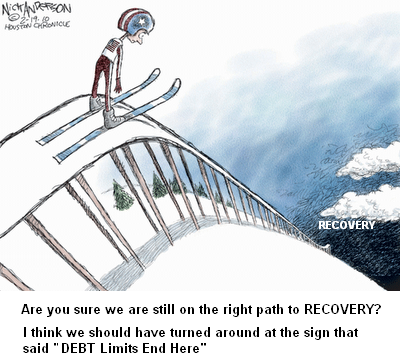
OLD
SAYING:
�When you
owe the bank
$100,000
and can�t pay you have a problem. When you owe the bank 100M
($100,000,000)
and can�t pay the bank has a problem�
TODAYS
VERSION:
When the
banks owe 100B
($100,000,000,000)
and can�t pay the banks have a problem. When the Banks owe 1T
($1,000,000,000,000)
and can�t pay the taxpayer has a problem�
INTERMISSION
Sign Up for the next release in the
Sultans of Swap series:
Sultans
To be
continued with:
ACT II �
THE STING
The second act is the heist itself. With rare exception, the heist will
be successful, though some number of unexpected events will occur.
ACT III �
THE GET AWAY
The third act is the unraveling of the plot. The characters involved in
the heist will be turned against one another or one of the characters
will have made arrangements with some outside party, who will interfere.
Normally, most of or all the characters involved in the heist will end
up dead, captured by the law, or without any of the loot; however, it is
becoming increasingly common for the conspirators to be successful,
particularly if the target is portrayed as being of low moral standing,
such as
casinos,
corrupt organizations or individuals, or fellow criminals.
SOURCES
(1) 03-05-10
The Swaps that Swallowed Your Town
the New York Times
(2) 03-03-10
Smoking Swap Guns Are Beginning to Litter
EuroLand, Sovereign Debt Buyer Beware! Reggie Middleton
Reggie Middleton at the
BoomBustBlog.com
(3) 03-01-10
Frank, Peterson Vow to Eliminate Provision Keeping Swaps Opaque
Bloomberg
(4)
03-08-10
Default Protection Is Lowest in Six Weeks as Greece Calms
BL
(5) 02-10-09
CSPAN Rep Paul Kanjorski Reviews the
Bailout Situation
Wkipedia:
http://en.wikipedia.org/wiki/The_Sting The Sting
Wikipedia:
http://en.wikipedia.org/wiki/Heist_film A Heist Film
03-03-10
Smoking
Swap Guns Are Beginning to Litter EuroLand, Sovereign Debt Buyer Beware!
FREE
Additional Research Reports at Web Site:
Tipping Points
Gordon T Long
Tipping Points
Mr. Long is a former senior group executive with IBM & Motorola, a
principle in a high tech public start-up and founder of a private venture
capital fund. He is presently involved in private equity placements
internationally along with proprietary trading involving the development &
application of Chaos Theory and Mandelbrot Generator algorithms.
Gordon T Long is not a registered advisor and does not give investment
advice. His comments are an expression of opinion only and should not be
construed in any manner whatsoever as recommendations to buy or sell a
stock, option, future, bond, commodity or any other financial instrument
at any time. While he believes his statements to be true, they always
depend on the reliability of his own credible sources. Of course, he
recommends that you consult with a qualified investment advisor, one
licensed by appropriate regulatory agencies in your legal jurisdiction,
before making any investment decisions, and barring that, we encourage you
confirm the facts on your own before making important investment
commitments.
� Copyright 2010 Gordon T Long. The information herein was obtained from
sources which Mr. Long believes reliable, but he does not guarantee its
accuracy. None of the information, advertisements, website links, or any
opinions expressed constitutes a solicitation of the purchase or sale of
any securities or commodities. Please note that Mr. Long may already have
invested or may from time to time invest in securities that are
recommended or otherwise covered on this website. Mr. Long does not intend
to disclose the extent of any current holdings or future transactions with
respect to any particular security. You should consider this possibility
before investing in any security based upon statements and information
contained in any report, post, comment or recommendation you receive from
him




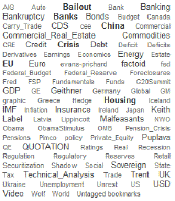





 GREECE
GREECE
 As
an illustrative example, what were the chances of housing correcting 15%
when we hadn�t seen housing go down in neither our lifetime or our
possibly our parents? Many considered it unlikely and therefore either
minimal or no contingencies were allowed.
As
an illustrative example, what were the chances of housing correcting 15%
when we hadn�t seen housing go down in neither our lifetime or our
possibly our parents? Many considered it unlikely and therefore either
minimal or no contingencies were allowed.